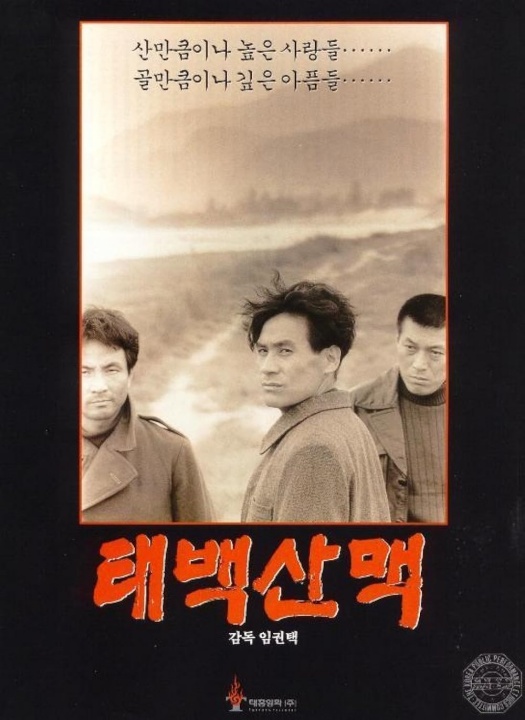Im’s swift and nimble war epic eschews subtlety and nuance for an emotionally charged work about the moral dilemma of taking ideological sides as Korea became tragically divided after WWII.

Review #2,807
Dir. Im Kwon-taek
1994 | South Korea | Drama, History, War | 168 min | 1.85:1 | Korean
Not rated – likely to be NC16 for sexual scenes, some nudity and violence
Cast: Ahn Sung-ki, Kim Myung-gon, Kim Kap-soo, Oh Jung-hae, Shin Hyun-joon
Plot: Based on the great river story, The Taebaek Mountains chronicles the lasting generational conflict between proprietors and peasants in South Korea.
Awards: Nom. for Golden Bear (Berlinale)
Source: Korean Film Archive
Accessibility Index
Subject Matter: Moderate – North-South Korea Divide; Ideological Conflict
Narrative Style: Slightly Complex
Pace: Normal
Audience Type: Slightly Mainstream
Viewed: Korean Film Archive YouTube
Spoilers: No
A war epic that isn’t about heroic battles, courage and sacrifices, The Taebaek Mountains is instead about taking sides, or the moral dilemma of taking sides during an unprecedented time in a country’s tumultuous history.
This was the time leading up to the Korean War, when ideologies started to get into people’s heads and ruined lives and livelihoods permanently.
It was hard to stay neutral and due to extreme poverty, many villagers deferred to the Communists, who promised to distribute farming land equally to them by destroying the legitimacy of rich landowners who exploited the poor.
At the same time, the anti-Communists warned of punishments towards those who were thinking of conspiring with the Communists.
But in this world of deception, betrayal and premature judgment, it was impossible to even know what or how to think when one could suddenly be labelled as a ‘commie’ or ‘traitor’ and executed a moment later.
“You have to choose a side. Those in the middle won’t be tolerated any longer.”
Through The Taebaek Mountains, Im shows us a Korea cruelly divided. It still is one of the most painful tragedies to have befallen an entire race of people in the 20th century.
Despite running close to three hours, the film is surprisingly swift and nimble. It is a testament to the economical storytelling that allows the film to move from one episode to another, without any fluff or unnecessary artistic indulgences.
Text-on-screen also efficiently tells us of the historical developments of the time, including the passing or vetoing of laws and policies that created even more chaos.
The performances may be overly dramatic but they serve the purpose of making it as plain as possible—that there was no way to be subtle and nuanced when sides needed to be taken.
Meant to be a commercial work that also functioned as an educational lesson at some level for more mature audiences, The Taebaek Mountains should whet the appetite of cinephiles looking for a compelling take on Korean history right after WWII.
Grade: A-
Trailer:
Music:
Korean Film Archive YouTube:












An interesting review. I have never heard of this film before, but your review has definitely compelled me to check it out. I’ve never seen any war movie depicting the lives of Korean soldiers. Most movies in the genre have always depicted WWII from an American perspective. For instance, Steven Spielberg’s “Saving Private Ryan” focused on American soldiers during the D-Day landings of Normandy. It’s my favorite war film of all time. I’m curious to see a film that captures a point-of-view of Korean soldiers which is something I’ve never been familiar with. So, I’ll be sure to keep this film on my watchlist. Thanks for the recommendation.
Here’s my thoughts on “Saving Private Ryan”:
LikeLike